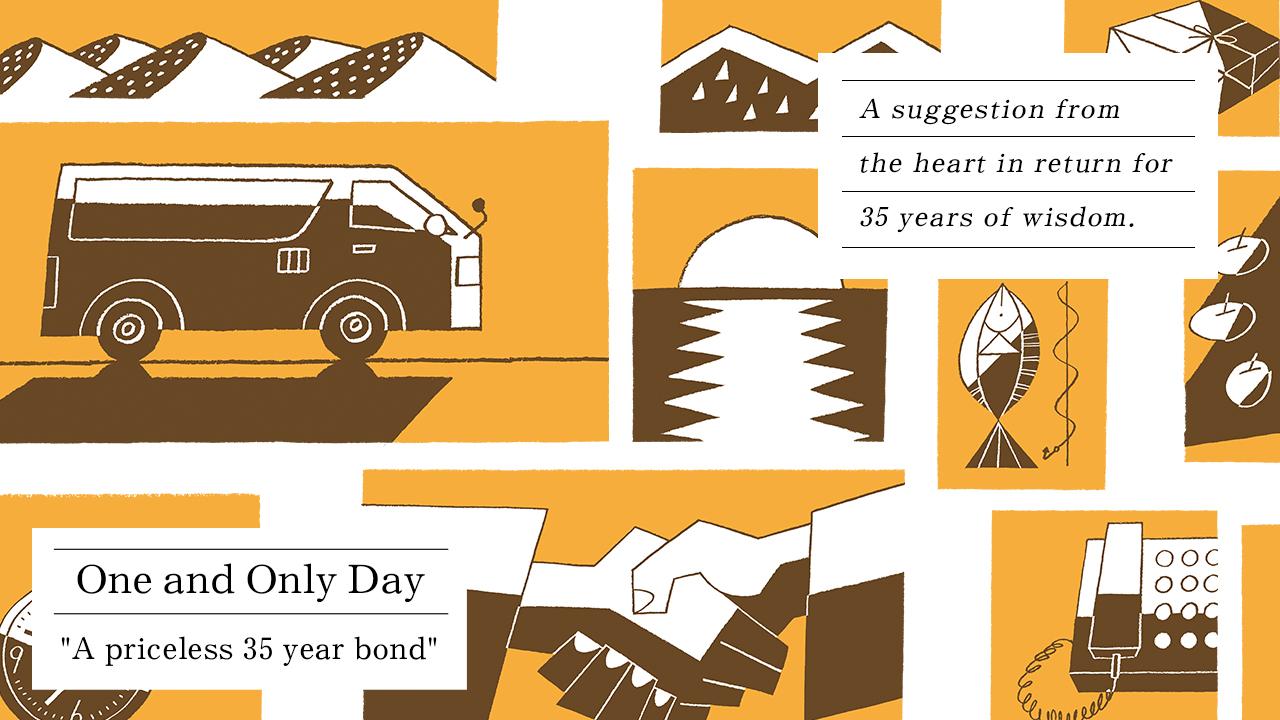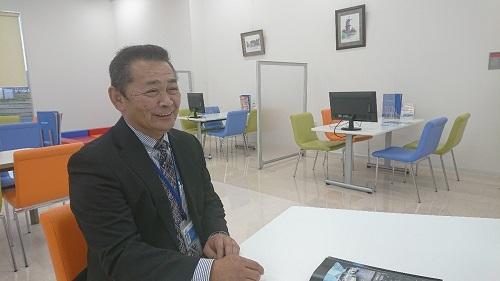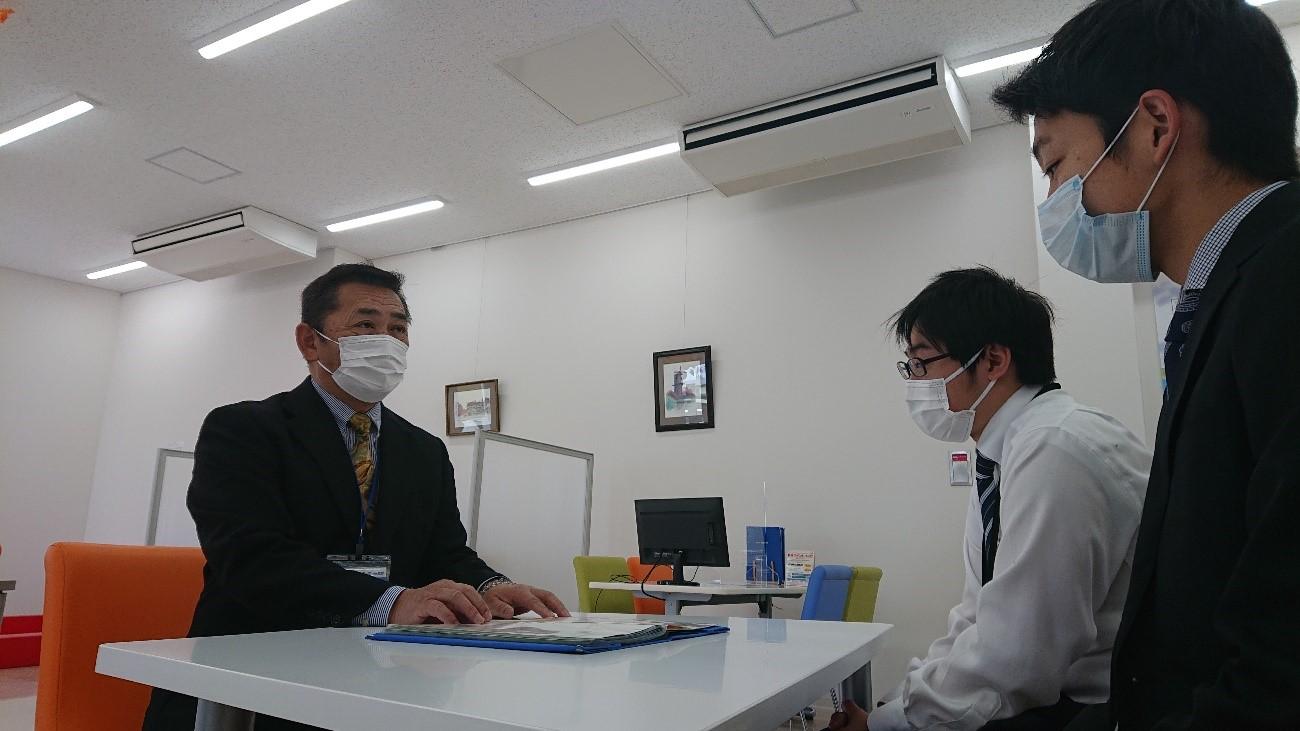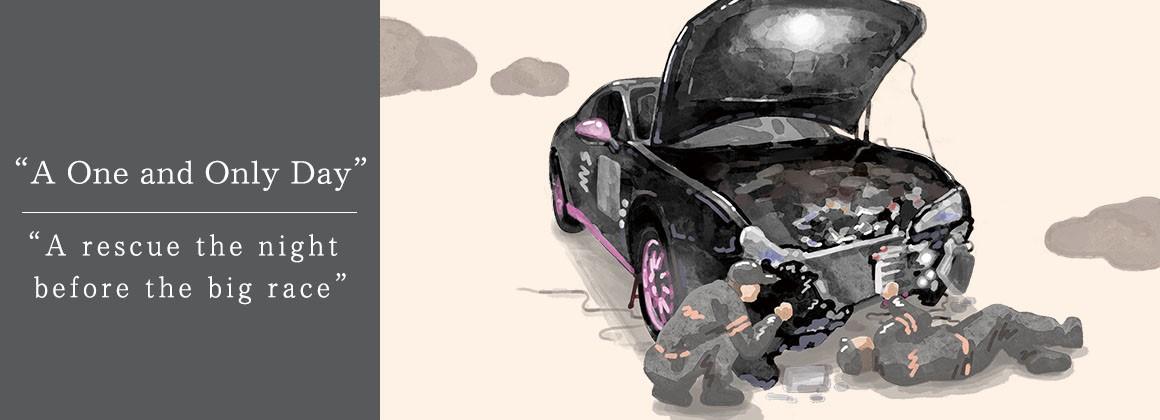
In this story, a salesman on staff at a dealership in Japan recounts the impact a customer and his words had on his life.

What is truly valued by someone who has sold over 3,000 vehicles
Following a hand-written message from Toyota president Akio Toyoda that said “Thank you. May you have yet another ‘One and Only’ day”, we have been sharing true stories – stories compelled by our customers – based on incidents that have happened between customers and dealership staff in this “one and only” series.
In this story, a salesman on staff at a dealership in Japan recounts the impact a customer and his words had on his life.

“One customer who changed my life”
In Kurayoshi City, Tottori Prefecture, a town rich in nature and surrounded by the mountains and sea, there is a member of the sales staff at a Toyota dealership who has sold over 3,000 vehicles during his career. His name: Mr. Yamashita. Dealership: Netz Toyota Kurayoshi.
The first time that Yamashita met the customer who ended up changing his life was 35 years ago, when the salesman was still in his 20s. At that time, his focus was solely on selling as many vehicles as possible from the dealer lot where he worked. However, his thinking of what working with customers and life was about evolved as he received many wise words from his customers, one in particular, over the years.
Early on, every time Yamashita and this one particular customer met at the dealership, they would chat. Often, Yamashita was given morsels of advice like “a life with sufficient food, shelter and clothing is not to be taken for granted, but is provided through the help of a lot of people,” and, “people live each day, supporting one another. It is important to be considerate and mindful of other people, putting yourself in other people’s shoes.”
At first, Yamashita, though lending a listening ear, thought the customer was merely a man with a lot of personal views and a desire to share them. After meeting a large number and variety of customers, and, as he gained more experience, Yamashita’s understanding deepened and his opinion of the words that one particular customer shared with him changed.
“I came to gradually experience the weight of his words,” said Yamashita. Before he knew it, these encounters with the customer and the words he shared with him had become a foundational basis of how he lived.

Suggesting now wasn’t the time to buy a new car
Back in 2016, nature-rich Tottori Prefecture was struck by a magnitude six earthquake. Yamashita, who was in the office at the time, recounted how he instantly saw the faces of many people he had bonds within his mind. After confirming that his own family was safe, he immediately went on to make a list and call many people to learn of their status. The customer was one of the people in the list. Upon picking up the receiver, he repeatedly thanked Yamashita for his call, saying, “Thank you very much for your concern for me.”
Even in the midst of the city being in chaos, Yamashita thought of others first, and many people were thankful for that. Their bond was deepened, going beyond what would be considered a “normal” relationship between a member of a car dealership staff and one of their customers.
To further demonstrate the depth of their relationship, it seems appropriate to share a few more examples. One example is how the customer loved to travel. Often, he traveled with his wife across Japan in his Toyota Regius Ace. When they would take a long holiday to drive to a place like Hokkaido, the customer would share how he and his wife would choose to stay near the places they enjoyed, meaning that sometimes they would sleep inside their car. They would often bring Yamashita souvenirs they bought for him after returning from such trips.
One day, Yamashita heard from a mutual friend that the customer’s wife was admitted to the hospital. Without hesitating, Yamashita went to pay a visit to the customer and his wife at the hospital. The customer seemed surprised to see him, but was also very happy that he had come, repeatedly expressing appreciation to him.
Unfortunately, about one year ago the wife passed away. As such, the customer, thinking about his family, felt he no longer needed such a large car, so he came to the dealership to hear what options he might have to trade it in for a compact vehicle. However, he didn’t sound as lively in his conversations with Yamashita, and seemed somewhat lonely without the presence of his wife.
Taking notice of this change, Yamashita suggested, “Since your car is filled with so many memories with your wife, why don’t you keep it a little longer?” The customer’s expression changed to a more cheerful one, and he replied, “Yes, that sounds like a good idea.” Yamashita confessed that any dealership would be happy to sell a car, but, in this case, perhaps this customer was looking for someone to help stop him from letting go of his car.
This example of being considerate and mindful of another and putting yourself in their shoes can only come when the focus is not on something so short-sighted as making another sale. In this way, Yamashita proved that he was following the exact advice he had been given so many times by this dear customer.
In fact, during the interview for this article, Yamashita could remember how he felt and the reaction from the customer, telling the story while he wiped his own tears away.

“When receiving complaints, be sure to do this one thing”
Originally, Yamashita joined the local dealership after graduation as a vehicle technician in the service department. In his fifth year, he was transferred to the sales department. “A maintenance staff works on things [like cars and parts], but the work done by a member of the sales staff is focused on people.” Yamashita says that this is a key difference and why he prioritizes his relationships with customers.
Normally, when a person receives a complaint from a customer, the last thing they want to do is go and speak more with that person. However, Yamashita says this is the very thing that you should do so that you can hear the details of the situation directly. It has been this very action that he says has led to being able to build the deep trust and special bond he has with his customers.
“Once you have faced and overcome the situation where it is difficult to talk about something, it becomes easier to form a long-term relationship.” Though he recalled it could be difficult at times, he says while smiling that the experience was worth it, because, “In this way, many customers have helped me grow.”
He adds, “I know that I am dealing with people. I’m not merely selling cars; I am trying to thoughtfully work with each individual person.” These days, his sales come more often than not through his current customers introducing him to new customers.
Yamashita’s efforts and strong desire to work with people has paid off: he’s achieved a sales of 3,000 vehicles. But, according to Yamashita, more than the number of cars sold, that number really represents the number of human relationships he has formed over his many years of working there.
Back to his relationship with that one particular customer, Yamashita said:
“The customer says he has received a gift from me, but I believe that it is just the opposite: I have received many gifts from him.”
To Yamashita, it is clear that the customer is the one who has had a huge impact on his life, not the other way around. He was the customer that changed Yamashita’s life.
Toyota believes in putting yourself in someone else’s shoes and thinking about what action they can take for the customer in front of them. There are Toyota dealership staff members today who are wishing that the customer will have a “one and only day,” and working for the happiness of the people in the town.


